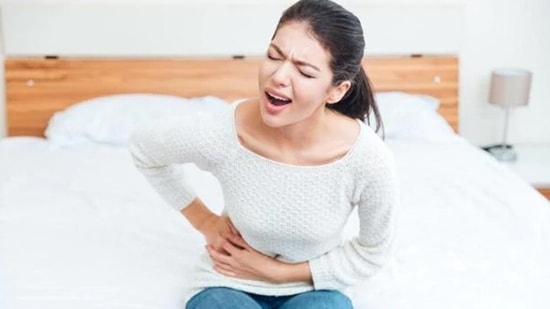Kidney stones: Warning signs and symptoms, reasons, treatment; how to prevent
Are you at risk of developing kidney stones? Know if you are eating the right diet and warning signs of a kidney stone from an expert.
Kidney stones are solid mass made up of minerals and salts that form inside the kidneys. Kidney stones are formed when the urine becomes concentrated and minerals crystallise. This could be due to certain health conditions or having a salty diet with less consumption of water. They are mostly found in the kidneys or bladder. Kidney stones can run in the family too and although they are of different kinds, calcium stones are the most common. Larger the stone, the more problematic it is and causes a shooting pain. Kidney stones like many other chronic lifestyle diseases can be avoided by following a more active lifestyle, eating right, drinking plenty of water and adding foods like basil, celery, apples, grapes that help protect the kidneys. (Also read: New Year 2023 resolutions to keep your kidney healthy)

"Kidney stones are mainly caused when dissolved minerals build up inside the kidneys. They can move into the urinary tract and that’s where they can cause problems. Stones are quite common and tend to run in families. Some of the factors that contribute to their development may also include a low fluid consumption, dietary intake, and a person’s medical history," says Dr Praveen Pushkar, MBBS, MS(Surgery) DNB (Urology) MCh (Edinburgh) FAIS MRCS (Edinburgh) DipMIS (Germany) at Pristyn Care.
Types of kidney stones
Dr Praveen says sometimes kidney stones are so small that people may not notice them and they pass through urine on their own. However, it is the bigger stones that create problems.
"Kidney stones may be small and pass unnoticed through the urinary tract, but some grow to the size of a golf. They can form in weeks or months when your urine contains too much of certain substances. There are several kinds of kidney stones. Calcium stones are by far the most common kind. Larger stones can cause severe pain as they leave the body," says the urologist.
Symptoms of kidney stones: How to detect them
Dr Praveen says there are no symptoms of kidney stones until they move around in the kidney or pass into the ureter, the muscular tube that connects the kidney to the bladder.
"Small stones can pass out of the body with little or no pain. Larger stones in the urinary system may get stuck and can cause symptoms like a severe sharp pain that starts suddenly, usually in your belly or one side of your back, and it may go away just as quickly. Other symptoms can include abnormal urine color, blood in your urine, fever, chills, nausea, and vomiting. Sometimes, a stone that's too big to move can create a backup of pee. This can make one or both kidneys swell, causing pain in the side and back. If it's not treated, it may cause long-term kidney damage," says Dr Praveen.
Reasons for kidney stone
Kidney stones mostly affect adults. But kids and teens can get them. Those who get kidney stones may have health conditions such as obesity, metabolic disorder, diabetes etc. It also depends on how the urinary tract is formed and what diet you are eating.
"Other factors include too much salt intake and not having enough water," says Dr Praveen.
So, what do you do about kidney stones?
"Your health care provider will perform a physical exam. You may need blood tests, kidney function tests, and tests that look for crystals in your urine. Several imaging tests, like a CT scan, can see stones or a blockage in your urinary tract. This helps doctors decide on the best treatment," says the expert.
Treatment of kidney stones
Treatment will depend on the type of stone you have, and how bad your symptoms are.
- Some need to drink a lot of water per day to produce a large enough amount of urine to help bring the stone out and take pain medicines to pass a kidney stone since pain can be pretty bad when you pass a kidney stone, says Dr Praveen.
- Doctors can also suggest taking alpha-blockers to help the stone pass more quickly and avoiding salt and sodas.
- Those with larger stones, or the stone is growing, or the stone is blocking your urine flow may need surgery or other treatments to help remove the stones.
- To get rid of large stones and stones that are damaging the kidneys, doctors can do a procedure in order to break up the stone into smaller pieces which can pass on their own or be removed with a scope or surgery.
Ways to prevent kidney stone
Kidney stones are a common problem. Not drinking enough fluid is a major causative factor, but dietary habits, obesity, and a sedentary lifestyle can all contribute.
"Including basil, celery, apples, grapes may help protect the kidneys. Anyone who has symptoms of a kidney stone, urine infection, or kidney infection should seek medical advice to prevent complications from developing," says the expert.
Catch your daily dose of Fashion, Health, Festivals, Travel, Relationship, Recipe and all the other Latest Lifestyle News on Hindustan Times Website and APPs.



